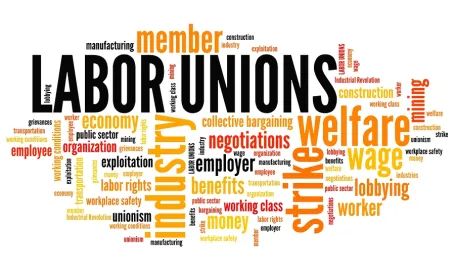In a highly anticipated decision, the United States Supreme Court today held that it is a violation of the First Amendment to require public sector employees who are not members of a union to pay any union dues, even when a portion of those dues is attributable to the costs of collective bargaining on behalf of all employees. Janus v. AFSCME Council 31, 585 U.S. ___, 2018 WL 3129785 (2018).
Petitioner Mark Janus, an employee of the state of Illinois, refused to join the union because he opposes many of its positions, including those arguably taken on his behalf in collective bargaining activities. Janus challenged the requirement that he pay any fees to the union, including that portion of the union dues attributable to collective bargaining activities (“agency fees”), arguing that such fees represent “coerced political speech” and that “the First Amendment forbids coercing any money from the nonmembers.” In a 5-4 decision, the Court overruled its prior opinion on this issue and determined that the state’s “extraction of agency fees from nonconsenting public-sector employees violates the First Amendment.”
Takeaways
Importantly, this ruling applies only to public sector unions, and therefore unions operating in the private sector may still collect agency fees from non-members. The impact of this decision on the public sector is sure to be significant. As the majority points out, unions may experience “unpleasant transition costs,” and as Justice Kagan predicts in dissent, this also means that state and local governments that previously operated with agency fees will have to find new ways of managing their workforces. Negotiations between parties that have a continuing relationship may become particularly contentious, as the parties can no longer rely on long-settled terms, such as agency-fee provisions, when bargaining over future agreements.
This development also may have a significant impact on political contributions across the country. In 2016, public employee unions contributed $65 million to political candidates, 90% of which went to Democrats.
The California state legislature already has taken several affirmative steps to cushion the blow of the Janusdecision for its allies in the labor movement. Last year, the California Legislature enacted and Gov. Brown signed Assembly Bill 119, which requires public employers to provide union representatives exclusive access to new employee orientation meetings so that the union can try to convince employees that it is in their interest to join the union and pay union dues. The new statute does not indicate whether employee attendance at such sessions is mandatory nor does it acknowledge the existence of Cal. Gov’t Code § 3502, which specifically guarantees that “Public employees also shall have the right to refuse to join or participate in the activities of employee organizations and shall have the right to represent themselves individually in their employment relations with the public agency.”
AB 119 also requires public employers to provide the union with exclusive access to the name, job title, department, work location, work and home address, personal cellular telephone number and personal email address of all newly hired employees within 30 days of their hire – and every 120 days thereafter.
More recently, the state legislature passed Senate Bill 866, which requires that state employees who wish to reduce or eliminate their mandatory union dues payments in the wake of Janus must make such a request exclusively to the union rather than their employer, and the employer must rely upon the union’s representation as to which employees have chosen to pay or not pay union dues. Further, a public employer may not send mail or email to its employees about their right to join or refrain from joining a union unless the employer facilitates the delivery of similar messages from the union.
The California State Assembly also passed Assembly Bill 2577 (Assembly Member Adam Gray, D-Merced), which allows union members to deduct the amount they pay in union dues from their income taxes. This statute is obviously designed to reduce the cost of paying union dues, and it is estimated that it will cost California taxpayers more than $600 million over the next three years alone.




 />i
/>i

